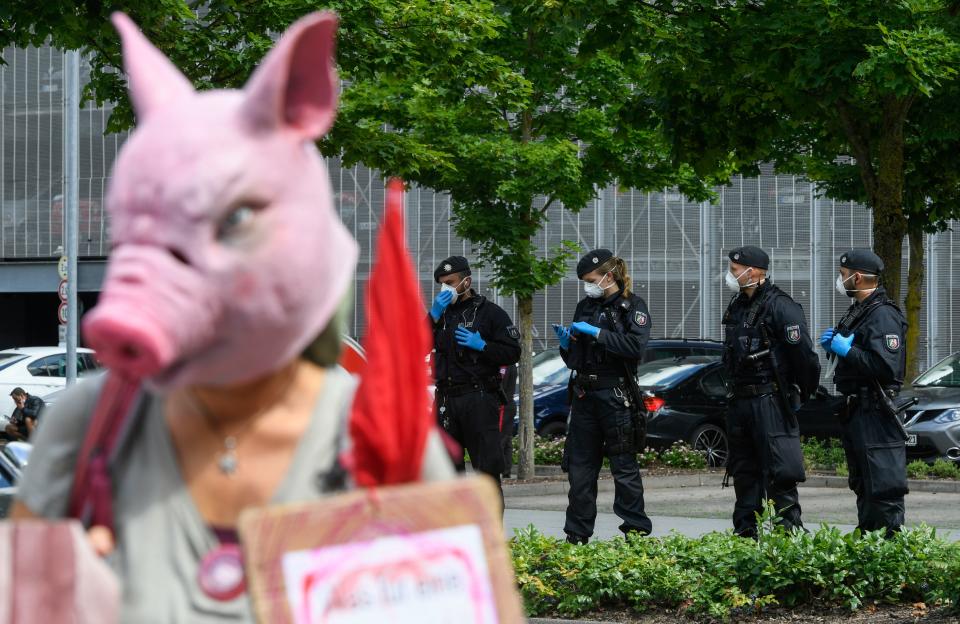Conditions at meat plants cause COVID-19 outbreak problems in Europe

After emerging in relatively energetic fashion from its national lockdown in May, Germany has imposed a further regional coronavirus lockdown in Gütersloh, in the state of North Rhine-Westphalia on Tuesday in the wake of a large outbreak of COVID-19 at a meat-processing plant last week.
The infection of over 1,500 workers at the Töennies abattoir forced state premier Armin Laschet to announce a strict lockdown on the 100,000 residents of the district until the end of June.
The 7,000 abattoir workers have been ordered to quarantine in their homes, while restaurants, bars, and events will be closed to the rest of the district’s inhabitants.
The outbreak, described by Laschet as the “largest occurrence of infection” in Germany, mirrors similar outbreaks during May and June at meat-processing plants in a number of European countries, including France, Spain, Ireland, and the UK.
Last week, a processing plant in West Yorkshire supplying supermarket giant Asda was forced to close temporarily after some 150 workers contracted the virus. The UK’s biggest chicken supplier, 2 Sisters Food Group also announced it was closing its site in Anglesey for two weeks after more than 50 workers tested positive.
READ MORE: Economic rebound for Eurozone continues
The Gütersloh outbreak is the latest in a number of cases in abattoirs and meat-processing plants across Germany. After an outbreak a plant in the western town of Cösfeld in May, officials said that the squalid working conditions among the mostly Bulgarian and Romanian migrant workers, including cramped shared staff housing, likely accelerated the spread of the virus.
In Germany, the coronavirus pandemic has laid bare the terrible working and living conditions of many migrant workers in meat plants, and sparked a debate about how the country’s addiction to cheap meat supports what has been described as “modern slavery.”
“Workers in the German meat industry work very often through subcontractors, not for the slaughterhouses themselves, and the working conditions at these subcontractors are often very, very bad," Szabolcs Sepsi from migrant workers’ rights group DGB Fair Mobility told Euronews.
The German government in May agreed to reform the meat industry, and ban the use of subcontractors from January 2021. This means the owners of meat-packing plants and slaughterhouses will have to directly hire their own workers, which will force them to take legal responsibility for them, rather than palming the responsibility off onto chains of sub-contractors.
READ MORE: UK car industry warns one in six jobs could be lost after pandemic
Experts say that nature of how the factory floors and plant lines are organised can cause the virus to spread more rapidly.
Tara Smith, professor of epidemiology at Kent State University in Ohio, told the BBC that when people are “standing right next to each other working heavily — because of course this is a difficult job — and breathing heavily, you have a chance for spreading virus from just one infected individual to many that are in close proximity."

 Yahoo News
Yahoo News 